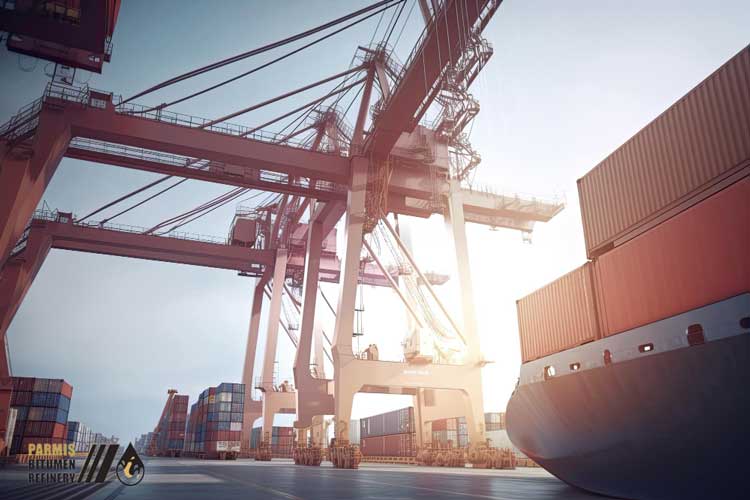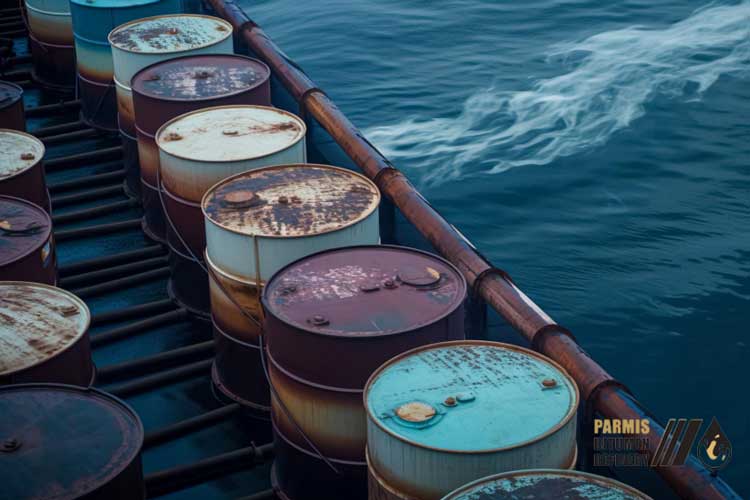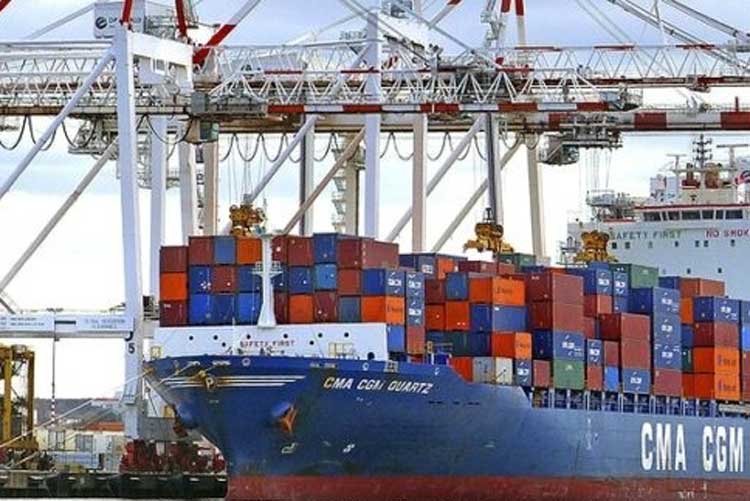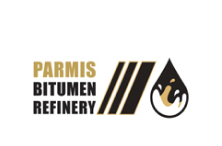Bandar Abbas, Iran’s principal port on the Persian Gulf, stands as a pivotal hub for exporting bitumen. The distribution of Iranian bitumen to international markets is made easier by its strategic location, which makes its price a topic of great interest to those involved in the infrastructure, road development, and construction industries globally. The Bandar Abbas bitumen price is determined by a complex interaction between regional economic dynamics, domestic production costs, and international oil prices.
Current Bitumen Prices in Bandar Abbas (October 2025)
The bitumen prices in Bandar Abbas are as follows, based on the most recent data from reliable sources:
- Bitumen 60/70: Approximately $387 to $390 per metric ton (MT) when packed in new steel drums.
- Bitumen 50/70: Ranges between $386 and $388 per MT in new steel drums.
- Bitumen 70/100: Priced between $387 and $390 per MT in new steel drums.
- Bitumen 80/100: Approximately $386 to $388 per MT in new steel drums.
- Bitumen VG30: Ranges from $386 to $388 per MT in new steel drums.
- Bitumen VG40: Priced between $389 and $392 per MT in new steel drums.
- Bitumen 35/50: Approximately $389 to $392 per MT in new steel drums.
- Bitumen Oxidized 85/25: Ranges from $350 to $352 per MT in 25kg cartons.
These prices can change depending on order volume, packaging type, and terms of payment, but they are representative of the going rates in the market.

Key Factors Influencing Bandar Abbas Bitumen Prices
The main elements influencing the price of bitumen in Bandar Abbas are listed below.
- Crude Oil Prices and Vacuum Bottom (VB) Costs
Vacuum Bottom (VB), a byproduct of refining crude oil, is the main raw material used to make bitumen. The cost of VB is directly impacted by changes in the price of crude oil globally, which in turn affects bitumen prices. An increase in the price of crude oil, for example, raises the cost of VB, which raises the cost of producing bitumen. - Exchange Rates and Currency Volatility
The exchange rate between the US dollar (USD) and the Iranian rial (IRR) has a big impact on bitumen prices in Iran. The IRR frequently fluctuates as a result of domestic economic policies and economic sanctions, which affects bitumen prices in USD. Abrupt price changes in the global market may result from this currency fluctuation. - Domestic Production Costs and Refinery Operations
A major factor influencing bitumen prices is the cost structure of Iranian refineries, which includes labor, energy, and maintenance costs. The final bitumen price may fluctuate in response to any changes in these operating expenses. - Global Demand and Export Dynamics
The demand for bitumen in international markets, particularly Bandar Abbas bitumen prices are impacted by areas with ongoing infrastructure projects. Growing demand from nations like China, India, and several Middle Eastern countries can drive up prices, while a slowdown in construction activities can have the opposite effect. - Political and Economic Sanctions
Iran’s capacity to export bitumen is significantly impacted by international sanctions. The bitumen industry may experience higher costs and more volatile prices as a result of sanctions that limit access to international markets, restrict financial transactions, and impact shipping logistics.
Understanding Viscosity Grade Bitumen (VG) and Its Pricing Implications
Viscosity Grade (VG) bitumen is classified according to its viscosity at a particular temperature, which establishes its appropriateness for a range of climates and uses. Higher numbers indicate higher viscosity in the VG grading system, which includes VG10, VG20, VG30, and VG40.
- VG30: Suitable for moderate climates, offering a balance between workability and durability.
- VG40: Ideal for warmer climates, providing enhanced resistance to rutting and deformation.
A number of variables, including production costs, regional demand, and the intricacy of refining procedures, affect the price of VG bitumen grades. Because of their specific uses and performance traits, VG grades are typically more expensive than standard penetration grades.
Packaging Options and Their Impact on Pricing
Bitumen is shipped in a variety of packaging types, each with a unique price tag:
- New Steel Drums: Standard packaging for bitumen, offering ease of handling and storage.
- Jumbo Bags: Larger capacity bags suitable for bulk shipments, often at a lower cost per unit.
- Bulk Shipments: Direct delivery in bulk quantities, typically the most cost-effective for large-scale projects.
The total cost of bitumen is influenced by the packaging option, with bulk shipments typically having the lowest price per unit. However, when choosing the right packaging, things like storage capacity and shipping logistics need to be taken into account.

Seasonal Variations in Bandar Abbas bitumen price
Seasonal variations in bitumen prices are common because of things like weather patterns and building cycles:
Summer Months: Increased demand for road construction and maintenance projects can lead to higher bitumen prices.
Winter Months: Reduced construction activities and adverse weather conditions can result in lower demand and potentially lower prices.
These seasonal patterns have an impact on both domestic consumption and export dynamics, making them especially pertinent in areas with unique climatic conditions.
Export Logistics and Associated Costs
Several logistical factors that affect pricing are involved in the bitumen exporting process from Bandar Abbas:
Shipping Costs: Freight charges vary based on destination ports, vessel availability, and fuel prices.
Port Handling Fees: Charges for loading, unloading, and storage at Bandar Abbas port.
Documentation and Certification: Costs associated with obtaining necessary export documentation and quality certifications.
Bitumen’s competitiveness in global markets is impacted by these logistical costs, which are factored into the final price.
Quality Standards and Certification
The National Iranian Oil Company (NIOC) has established national standards for the production of bitumen in Iran. Reputable vendors guarantee that their goods fulfill global quality standards and offer certifications like SGS (Société Générale de Surveillance) to confirm the caliber and quantity of their output. For purchasers looking for guarantees of product integrity and adherence to contractual requirements, these certifications are essential.
The Function of Parmis Bitumen in the International Market Parmis Bitumen is a well-known Iranian manufacturer and exporter of premium bitumen. With a With a commitment to excellence, Parmis Bitumen offers a range of bitumen grades, including Viscosity Grade Bitumen and Penetration Grade Bitumen, that are intended to meet the diverse needs of international markets.
Leveraging advanced production techniques and adhering to stringent quality control measures, Parmis Bitumen ensures that its products are built to the highest performance and dependability standards, and the company’s advantageous Bandar Abbas location allows for effective export logistics, facilitating timely delivery to global clients.
For businesses seeking a reliable source of quality bitumen, Parmis Bitumen represents a trusted partner in the Iranian bitumen industry.
Conclusion: Navigating the Complexities of Bandar Abbas bitumen price
Understanding the factors influencing Bandar Abbas bitumen prices is essential for stakeholders involved in procurement, project planning, and cost estimation. By staying informed about market dynamics, quality standards, and logistical considerations, businesses can make strategic decisions that align with their operational goals and budgetary constraints.


